How exactly does a hyperdrive work? When does a wizard get their wand? How do crystal gems summon their weapons? It can be a little overwhelming to be dropped into a story with unknown systems and terminology. Typically, there’s no reason for a gem warrior to go about explaining exactly how she uses her powers, or for a wizard to be explaining how a hyperdrive works. But we get to see this new world through the protagonist’s eyes. They ask the questions we would have asked, react the way we would, and then go on to achieve the victory that we certainly would have achieved as well.
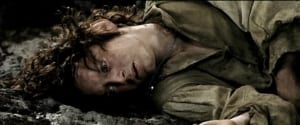
We relate to them, and learn with them, so that the protagonist’s victories are our victories, their fears are our fears, their love is our love. Except for those times we just don’t give a crap. Why do certain protagonists fall flat? This is a question that has been bugging me more and more frequently. A story can be told through many different viewpoints; the protagonist must be the best possible viewpoint, right? Yet often I’ll find myself enjoying a story when it is entirely removed from the protagonist. Sometimes, we just get tired of the main character- as a sort of protagonist-fatigue. if you like.

Protagonist fatigue is a sort of attitude, a pervasive feeling of “Yeah you’re cool but could you get out of the way so I can enjoy the movie.” How do you know when you’re feeling protagonist-fatigued? What are the symptoms of it? Well, how many of you pored over your Harry Potter books trying to find every little spell? And were often thwarted by how, for some reason, Harry seemed to focus on class less and less? This is a good indicator of protagonist fatigue – you’re rushing past the protagonist’s feelings to get to the little world-building details, because to you, the story’s universe is more interesting than the story’s hero.
In the Harry Potter series, the protagonist isn’t bad or bland. You can easily see how a reader might get more interested in the world around him, though. Part of what keeps that fandom going isn’t the new material that’s coming out; it’s that the universe is rich enough to keep people speculating even years later. Magic is everywhere, used for everything from household chores to world-binding enchantments. There’s story possibilities and endless ideas that can fit into such a spacious…space. The idea of Hogwarts can be more compelling than Harry in many cases.
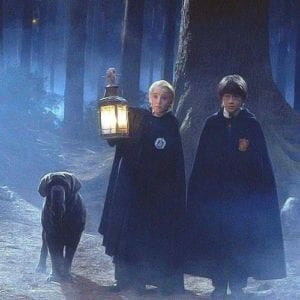
Protagonist fatigue doesn’t necessarily mean that they are an unrelatable character; it’s nothing personal, really. But it is strange when we have a hard time empathizing with the main character, when they are designed to inspire empathy. Sometimes, that design can cause protagonist fatigue too, though. Is it possible for a protagonist to be so relatable that we just can’t relate? I think so, and not just because we always hope wisdom can be found in paradoxes. When trying to be the every-man, a protagonist can become too bland, too generic, too processed.
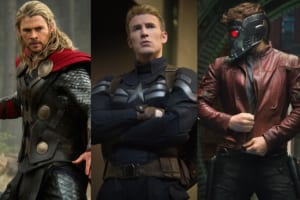
Repetitive casting aside, I’m pointing at when a protagonist becomes so bland that we wonder why we’re even following this person’s story. When they’re so clearly meant to be sympathetic, we just can’t muster up any sort of sympathy. We want the hero to be just like us, but more awesome. We want a clear reason why the hero is the hero. For example, Ant-Man certainly lacked a good reason. I had to watch that movie twice and I’m still not sure why the protagonist happened to be better at doing everything after one short training montage.
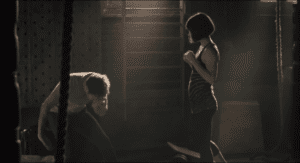
There’s nothing to indicate that this protagonist has some advantage or some natural talent the others lack. It’s simply because he’s the every-man, and tailored to the target audience. And then when you start picking apart these carefully-selected qualities, you can’t see anything but their manufactured nature. The characteristics that were supposed to help us identify with the protagonist – his sense of humor, his awkward divorce, his incredulity towards the Ant-power revelations – these accomplish the opposite, jolting us out of our suspension of disbelief with their artificiality. The tropes are too clear, and we find ourselves looking for somebody else to lead the story than the pre-selected protagonist.
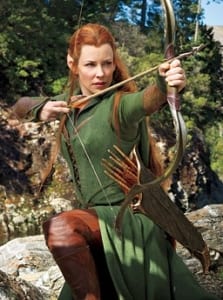
Ant-Man also displays another way that protagonists can fail to keep our attention. We spend much of that movie looking at the Strong Female Character, wondering why she isn’t putting on the suit. This is mostly because of the overdone likability of the main character, but something else as well. Sometimes the protagonist can be tiring because we don’t know why they are supposed to be more interesting than their allies and supporting cast. A more clear example can be found in Star Wars.
Star Wars is often known for its background cast. Who can forget the magic of learning Momaw Nadon’s backstory? Or good old R5-J2? Oh man, the times they had.
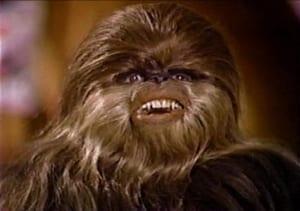
Ok, so the world-building doesn’t work too well. In Star Wars, to say that it’s the brilliant story universe distracting us from the character is too…general to be accurate. Heck, the more we know about the Star Wars galaxy, the less happy we are. There’s a subtle distinction to this next brand of character fatigue, and it’s about the supporting cast.
Rogue One had a diverse and interesting cast of freedom fighters. There was Captain Andor, with his gray morality, teamed up with K2-SO, some sort of reprogrammed Imperial droid. Then Bodhi Rook, a turncoat Imperial pilot guided by his conscience, and two mystical Force warriors, Chirrut and Baze. Guardian of the whills? Wasn’t that one of George Lucas’s crazy old ideas? And how did this guy end up married to this gun-toting heavy-hitter? And Cassian? He’s been fighting the empire since when now? Like actually, physically fighting them from age 6? That sounds horrible, even if the Empire’s main weakness is combatants under 4 feet tall.

This certainly distracted a lot of viewers from Jyn Urso, whose backstory was resolved in such an unsatisfying manner that fans actually looked at a Star Wars movie and thought, “This could use more family drama.” Many viewers looked past the Urso family and asked, “What’s that dude’s story?”
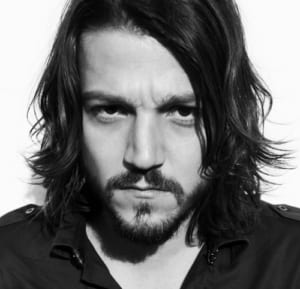
In Rogue One’s case, it’s certainly not the universe, but the supporting characters that drown out the main character’s storyline. We only get a glimpse of these fascinating Rebels before we move on. We follow Jyn throughout the movie and are still left wondering how she ended up in charge of this Rebel mission, not because this is out of the question, but because it makes all these fascinating background characters seem like they are just there as props.
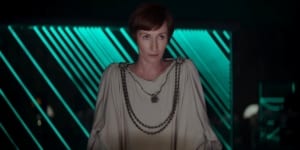
There’s nothing wrong with it focusing on Jyn, we just are left wanting – wanting more backstory, more detail, more motivations, for every one of the other secondary characters. Especially that mind-reading octopus thing. I’m still confused about that one. Part of what makes these characters so intriguing is the unanswered questions about their background, but this is a simplification. It’s not just that Baze and Chirrut have unexplained powers or origins – it’s that there is a significant space for story there. This is a reader’s perspective, because as readers we are always trying to get ahead of the revelations or the twists in the story, and in these examples we are confused when the facts we are lacking never come up. That’s when the protagonist-fatigue sets in.
We were sure we would learn more and more about spells in Harry Potter, but were somewhat disappointed when it devoted ever-increasing time to the hero of the story. This is a strange sort of disappointment, mirrored in Star Wars when they skipped past the supporting characters, and Ant-Man when they skipped past any sort of logic. It’s the disappointment of unanswered questions or missed opportunities. And I find it happening more and more when I’m looking out for it – when I am just trying to get through a chapter, wishing the hero would just wrap it up so we can get back the important stuff. It’s a narrow path to walk, for a protagonist to be inexperienced enough for the audience to relate to, but special enough to warrant the spotlight in their particular universe. So it’s unavoidable that sometimes, we just don’t need a hero.

